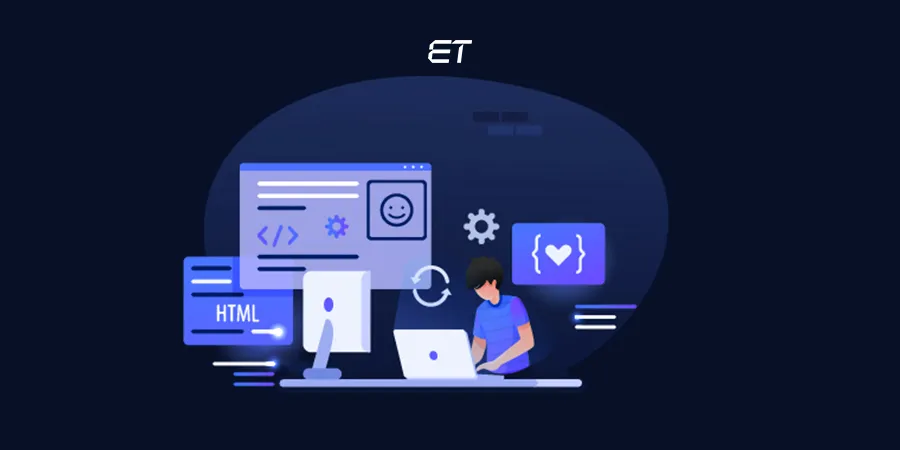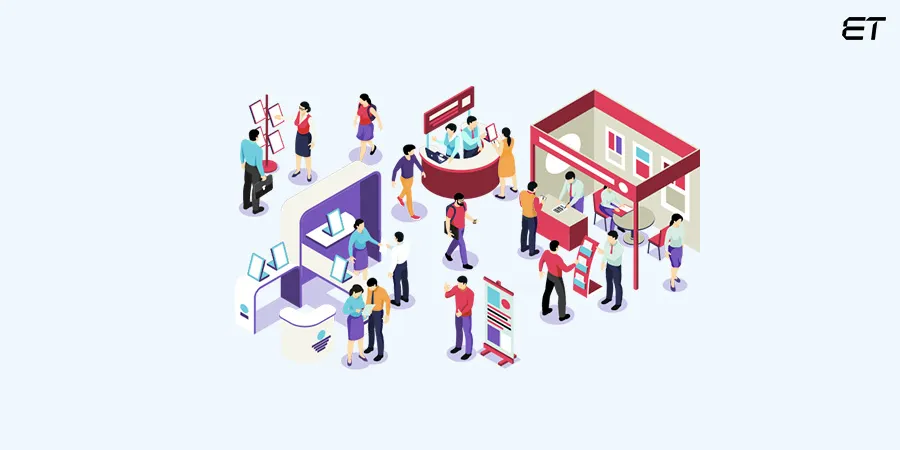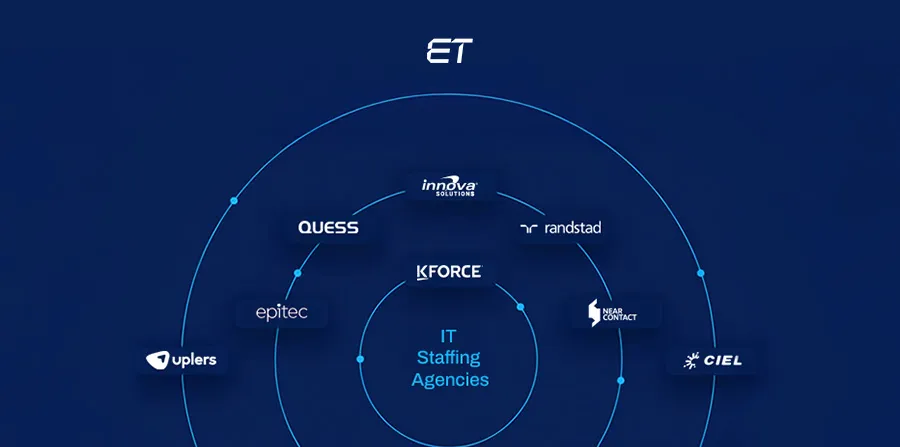
Finding Software Developers: A Practical Playbook for CTOs
- Finding software developers requires a thoughtful and systematic approach.
- Define role requirements clearly to attract the right technical talent.
- Choose a hiring model based on product stage and team needs.
- Use developer communities and niche platforms to source high-quality candidates.
- Don’t overlook soft skills like communication, adaptability, and problem-solving.
- Create compelling offers with clear impact, growth, and flexibility.
Your product is scaling fast, customers are increasing, and so are the clients. But at the same time, keeping up with orders, requests, and deadlines is becoming increasingly difficult. Now, you have no option but to hire more developers to extend your team.
However, finding software developers isn’t a walk in the park.
From defining the right skill sets and scanning candidate profiles to selecting the right talent, the process can get overwhelming. One wrong hire can cost months of progress.
To save you the trouble, this guide outlines the steps to find a software developer. We’ll break down actionable strategies to find, assess, and choose the best talent for your team.
Want to hire seasoned developers hassle-free?
Step #1: Define Project Requirements Clearly

The first step in finding software developers is identifying the technical and business requirements for the project.
Are you launching a new product, scaling existing infrastructure, or refining parts of your product/service? The answers will determine the kind of developer you need, both in terms of skill set and seniority.
Then, align your hiring process with the business objectives. Without precise alignment, you risk bringing on talent that doesn’t contribute to your roadmap.
So, find answers to these questions:
- Is this role tied to building the new feature or product?
- Will the developer work on performance, scalability, or modernization?
- Is this a short-term resource need or a long-term strategic hire?
- Which technical skills do I need – front-end, back-end, full-stack, or DevOps developers, or cybersecurity expertise?
Be specific about experience levels and tech stack experience.
In addition, determine whether you need a generalist or a specialist. This will depend on your current team composition and project requirements.
- Generalists are valuable for early-stage startups or small teams where flexibility is key.
- Specialists are ideal for scaling specific domains like performance tuning, infrastructure automation, or platform security.
This kind of upfront clarity helps you reduce hiring cycles and find appropriate team members.
Step #2: Decide the Hiring Model for Finding Software Developers

The next step in finding software developers is to decide the hiring model or type of professionals you need. There’s no one-size-fits-all solution, as the ideal model depends on your team structure, growth stage, and product maturity.
Here’s a table comparing various hiring models in detail.
| Hiring Model | Ideal Use Cases | Pros | Cons |
| In-House Developers |
|
|
|
| Remote In-House Team |
|
|
|
| Freelancers / Contractors |
|
|
|
| Staff Augmentation |
|
|
|
| Outsourcing Partners |
|
|
|
However, if these models don’t suit you, choose a hybrid model. Here, your in-house team handles essential project tasks, while freelancers handle the rest.
Struggling to decide the right hiring model?
Step #3: Explore Multiple Hiring Platforms

Searching for the right candidates isn’t a straightforward process in such a cutthroat market. You need to browse multiple networking channels and platforms to find a software developer.
- Developer Communities – Platforms such as GitHub, Stack Overflow, and Dev Community reveal real coding skills, collaboration style, and real-world contributions.
- Remote Talent Platforms – Explore sites like Toptal, Arc, Gun.io, and Upwork for vetted freelancers or contractual candidates. These are ideal for specialized or short-term needs.
- Social Media Platforms – Check out LinkedIn and X for developers who share thought leadership, engage with your company’s posts, and match your tech stack. Interacting with these developers is also convenient here.
- Referral Programs and Alumni Networks – These channels can fetch you high-quality candidates who align with your culture, have proven expertise, and are reliable.
- Coding Bootcamps and Universities – Access emerging talent and shape their skills through internships, mentorship, or early hiring before competitors reach them.
Another great option is to work with experienced tech recruiters or outsourcing companies. These agencies will offer you great talent that matches your company culture and tech requirements.
Step #4: Evaluate Technical and Soft Skills

When finding software developers, you need to assess their overall skill set and personality. Soft skills are as critical as tech skills, as they help determine if the developer has a place in your team. It’s not just about coding, but collaborating and growing with your team.
Begin by reviewing the candidate’s resume to understand their technical experience. Look for open-source contributions to relevant projects, clear impact metrics, and involvement in technical communities.
Watch out for red flags, such as vague responsibilities, frequent job hopping, and work experiences without clear outcomes.
Then, follow these steps for a fair and challenging technical evaluation:
- Use take-home tasks based on real challenges your team actually solves.
- Run pair programming to assess thinking, coding speed, and collaboration style.
- Conduct system design interviews to test architecture, scalability, and decision-making skills.
- Ask candidates to review and improve a sample codebase or pull request.
Avoid trick questions or purely theoretical exercises, focus on core skills. Next, begin examining their soft skills and how well they communicate:
- Ask behavioral questions to gauge communication, ownership, and conflict resolution skills.
- Observe how candidates receive feedback during technical interviews or code reviews.
- Let them interact with your team to evaluate collaboration, listening, and adaptability.
Finally, ask yourself whether the preferred candidate brings new perspectives and complementary strengths that can level up your team.
Step #5: Attend or Speak at Industry Events to Connect with Developers

Events like tech conferences, seminars, and job fairs are great places for finding software developers.
Unlike cold outreach or job platforms, you get to connect with skilled individuals and understand their interests. You can dig deeper into their mindset, communication skills, and areas of expertise.
So, participate by either observing and networking, or speaking to establish thought leadership. Here’s how to make your participation fruitful:
- Attend events related to your stack, like Kubernetes meetups or Go conferences.
- Host sessions, panels, or workshops to increase visibility among relevant professionals.
- Send engineering team members as brand ambassadors to interact with developers.
- Use presentations to explain real-world problems your company solves.
Moreover, partner with event organizers to co-host specialized tracks, offer hands-on coding labs, or run live product demos. These formats attract developers interested in solving real-world problems and help you assess their technical curiosity.
By being visible in the right technical spaces, you’ll identify talent and position your company as a reputable workplace.
Step #6: Create an Offer They Can’t Refuse

Besides the various strategies mentioned above, the one thing that draws the best talent towards you is a lucrative offer. It’s perhaps the most important yet overlooked recruitment aspect that can set your company apart.
To secure the right hire, your offer must go beyond a handsome paycheck. It must discuss impact, growth, and autonomy, aspects that all employees value.
So, start by defining the role clearly. Developers want to know:
- The product or service they’ll build
- The team they’ll work with
- Technology stack
- How their work impacts the product and business
Next, focus on crafting an offer package that balances monetary and non-monetary incentives. Include these details:
- Competitive base salary aligned with skill level and market benchmarks.
- Flexible work options, including remote or hybrid setups with support for asynchronous work.
- Equity or performance incentives that reflect long-term benefits.
- Learning budgets or access to conferences, certifications, or mentorship programs.
- Clear growth paths with defined promotion criteria and leadership opportunities.
Also, talk about how developers at your firm participate in decision-making and don’t blindly follow business metrics. Ensure the offer communicates why joining your team will accelerate their career and strengthen their professional profile.
While pondering how to find a software developer, try placing yourself in the candidate’s shoes to design the best offer!
Connect with pro developers worthy of your offer
Common Challenges to Overcome While Finding Software Developers

Let’s look at some common challenges of finding software developers and their solutions.
- Lengthy Hiring Cycles – Simplify interviews, use vetted talent sources, and give fast, clear feedback to speed hiring.
- High Competition for Top Talent – Highlight tech vision, meaningful projects, and strong engineering culture to stand out.
- Vague Role Definitions – Clearly list skills, responsibilities, and outcomes to attract the right candidates.
- Failing to Assess Team Fit – Include team members in interviews to evaluate the candidate’s collaboration style and team alignment.
Identifying these challenges early on can help save hours while spotting high-quality developers. You’ll also shorten your recruitment cycles.
See how we helped an NYC agency hire smarter
The Bottom Line
Finding software developers can be less overwhelming if you follow our steps. By defining roles clearly, sourcing talent effectively, and crafting a compelling job offer, you can build a solid team.
As a trusted India-based software development partner with 22+ years of experience, we make the process streamlined. Our team has helped businesses across the US, UK, and APAC regions hire pre-vetted developers who deliver.
Whether you need a full team or a few experts, our flexible engagement models and global delivery experience make hiring seamless.
So what are you waiting for? Reach out to us and let’s build something exceptional together.
Let us build a team that paves your company’s future.
Frequently Asked Questions
1. How to optimize the process of finding software developers with niche skill sets?
For finding software developers with niche skills, define role-specific criteria, check out specialized communities, and highlight exciting technical challenges.
2. How important is cultural fit when finding software developers for distributed or remote teams?
Cultural fit is crucial when finding software developers for remote teams as it ensures alignment and smooth collaboration across time zones. It’s also easier to communicate with teams working across distributed work environments.
3. How much does it cost to hire a software developer?
Software developer hiring costs can range from USD 10 to USD 150, depending on location, expertise, and engagement model.
Determining the hiring budget is vital when finding software developers, as it impacts the quality of talent you source.



